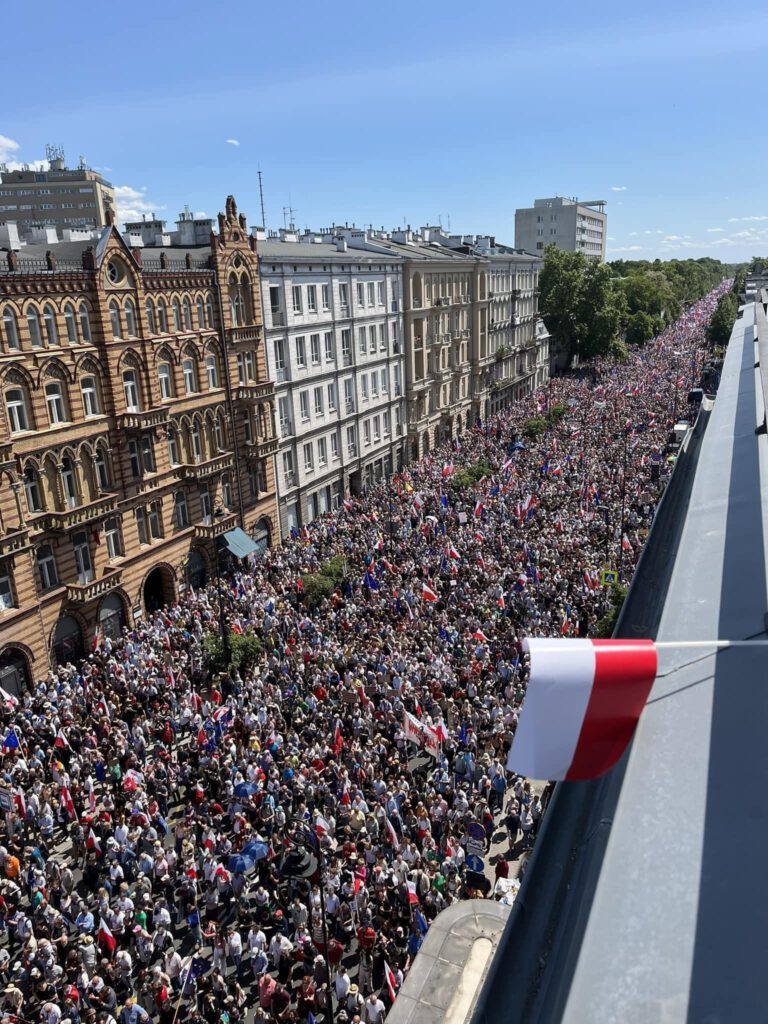News
Hundreds of thousands demand change in Poland protest
Hundreds of thousands of protesters have gathered in Warsaw for one of Poland’s largest demonstrators since the fall of communism in 1989..

Most opposition parties have called on supporters to join the march against the nationalist Law and Justice party (PiS), led by Jaroslaw Kaczynski.
Among those attending are former Prime Minister Donald Tusk, and former President Lech Walesa.
The PiS has condemned the gathering as a “march of hate”.
The mayor’s office for Warsaw has estimated half a million people attended the event, which fell on the 34th anniversary of Poland’s first partially-free elections.
Many travelled from across the country to take part, and simultaneous demonstrations have been held in other Polish cities like Krakow.
A wide variety of issues brought protests together, including frustrations over inflation, costs of living, and rights for women and LGBT.
Concerns have also been raised against new law accused of undermining Poland’s democracy.
The law, criticised by the EU and US, sets up a commission to investigate undue Russian influence in Polish politics, and has the power to ban people from assuming public office for 10 years.
Polish probe into ‘Russian influence’ angers EU
The government denies it is subverting democracy and President Andrzej Duda has proposed amendments to remove these powers.
But critics say it could still be used against people, including Mr Tusk – Poland’s main opposition leader and head of the centrist Civic Platform (PO) party.
Opponents say it could also bolster the PiS’ standing in this year’s parliamentary elections.
Crowds of people have been pictured waving Polish and EU flags and holding placards, and participants told the BBC that protesters were chanting “democracy” and “we will win”.
“I came here to defend democracy because I can’t stand how our parliament, the constitutional tribunal are destroyed, the European Union is diminished,” one protester told Reuters news agency.
Donald Tusk, a former head of the European Council, also welcomed supporters during the “record” march.
“Democracy dies in silence but you’ve raised your voice for democracy today, silence is over, we will shout,” said Mr Tusk.
Ahead of the event, the PiS accused organisers of of hypocrisy, tweeting a video that police brutality and violence against the media while Mr Tusk was in office.
Wojciech Przybylski, editor of Visegrad Insight, told the BBC that these protests show Poland’s opposition groups can unite over common causes, despite their political differences.
But PiS is still ahead in opinion polls, he adds, and “this is going to mobilise them, because they know the opposition is for real”.




